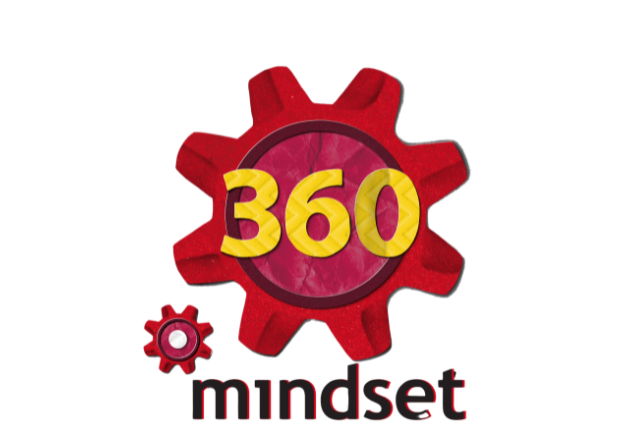How is failure helpful? No Really!

How is failure helpful? No Really!
By Dr. Lowell Wightman
Daily, all throughout the year, there are outdoor adventures to experience, social events to share with friends and family, and always places that provide a new set of insights. As you make your plans do you ever think about what you will do when a moment does not deliver the highest results you expect?
How do you manage failure? Do you consider failure as an opportunity to learn? How quickly do you overcome the impact of failure? Life experience and structured practice could help you convert failure into deep insights for excellence.
With an active lifestyle, and weeks full of activity, comes a higher percentage for error, injury, or failure. Just ask your neighbor with the three kids ages 9 to 13 about the amount of band aides and Neosporin they use. I realize there are families who have band and science camp along with visits to see family so also consider error related to hurt feelings, frustration, and when schedules collide. My point is, maintaining positivity and outcomes that create positive memories are not planned for or strategized.
In my world practicing and planning for positive outcomes is a daily effort and strategy. For example, if it is too hot outside, according to your standards, what do you do? Do you continue with activity, reschedule or just not do it? For an elite performer, I recommend they stay focused on what we/they can control and adjust to any all factors not in their control or that surprise them. Executing a practice plan has no room in it to accept average or less than excellent effort.
Champion teams and the elite performance individual plan and practice harder than they play because they know how strong challenges in practice will provide examples and habits that create skills equal to or greater than efforts required during a competition. If you happen to meet a competitor or a challenge that equals your preparation and effort ,then the fans will witness an outstanding competition.
In these cases, the loser walks away respecting the winner and the winner walks away honoring the loser. In either case their individual and collective set of errors, failures, or mistakes become directions for the next set of planning and practice events. Identifying shortcomings after a contest are initially humbling and with this feeling comes the motivation to improve ones’ shortcomings.
Consider a ride in a hot air balloon as an example for using failure as a road map for improving performance. As you rise off the ground you suddenly realize the simple structure of a woven basket lined with sandbags for ballast. The power to propel you into your adventure is hot air, supplied by a combustible burner sitting above your head warming the air captured above you in the balloon. As the balloon rises you noticed it is not rising fast enough to clear trees in its path, failure. So, to correct this, more hot air must be created in the balloon to elevate. A longer burst on the burner heats the air faster and the balloon rises clearing the trees. Simple science concepts implemented quickly with the right tools adapts to the failure and the balloon adjusted by rising over the trees.
A hot air balloon is not nearly as mired or challenged by life as it is managing an active family or the performance career of an elite athlete, but it does provide specific guidance for using failure as a learning experience.
My child falls and skins their knees; balloon will not clear the trees. I want them to be strong and eventually self-sufficient; rise-up and clear the trees ahead of them. Whether you anticipate the failure because you have run on this uneven sidewalk before or someone helps you up and shows you the rock you tripped on, you put more hot air into your balloon and rise over the trees.
Ok my balloon is falling, and we won’t avoid the trees. What if I am falling too fast? I can’t adjust quickly enough? Or, I am too far away, and I am not there to catch my child before they trip and fall on the concrete. These are simple examples of failure and do not represent situations with many participants, moving at different speeds, and varying performance skills. Let’s increase the complexity and add more people and things that may influence your performance.
Imagine a typical day and create a vision of the many people and things that could influence your performance. As you build this image do you see just what is in front of you or does your view widen and take in 180 degrees of content? When you approach people are you making decisions about how you will maneuver or address them in passing? Continue to build your image and add things to the content. Things you may pass everyday but you do not see them. Try to recall details that define these things right down to a faded color or dent in a sign. Now add details about people.
Are you seeing the same people in your vision? When you consider details about those you pass identify facial features first and then add height, weight, and your thoughts about who they are. For example, I am approaching a woman who has a long elegant face simply made up with long perfectly styled black hair. She is shorter than me but with heels she seems to be five feet nine inches tall. Her body looks thin but very athletic by the way she walks. She just passed me. A man in a suit crossed in front of me with a brief case in one hand and a young boy holding his other hand. I switched my backpack to the other shoulder as I guided it over the head of the boy. Near miss. How can this much activity, energy, and people influence elite performance?
Being mindful of seeing 180 degrees of details may increase your capability for adjusting and adapting to sudden and unexpected changes. As in the example, being mindful of details raises your awareness to movement as well as your own placement within all the movement around you. Here is a counter set of examples.
How many people have you seen using their smart phone with their head down and they are walking? This example represents very little awareness to those around you and raises the potential for error and failure. When I approach, people doing this, I get in their path waiting to find out how close they get to me before they stop. I have been bumped into a few times. Really! This failure may not teach the person bumping into me anything, but I must gather insights (data) and the experience is always fun.
As you continue to create a vision for one of your typical day of activity try expanding your vision further and further in front of you. Perhaps your 180-degree panorama reaches beyond five or six feet. If it does you are more mindful and aware then most. A test for being overwhelmed and stressed is when your mindfulness is creating tunnel vision and you are only seeing people and things within a body length in front of you. You get to this place your probability for physical and emotional error or failure increases. When or if you feel tunnel vision and reduced awareness consider these strategies.
Resting and renewing yourself physically and emotionally is great first step. Nutrition (food) and sleep are essentials for physical and emotional renewal. Renewing mental focus can be influenced by reducing stimulation. Reading books, taking walks, and listening to music, without lyrics, are examples of low stimulation activities. When you add soothing environments to these examples you may even recharge your focus. So, consider taking walks in sight and sound soothing plances while listening to classical music or jazz.
Just like change, error, failure and making mistakes are a given; we are not perfect. You may find this hard to believe but there are people who behave as though they are perfect and never make mistakes. I will not mention any names, but I have and still do work with people like this. To the degree, you believe you are not perfect you will consider personal failure as opportunities to improve while increasing your mindfulness. Really!
As you consider your environment and your degree of mindfulness you will begin recognizing where you may challenge yourself at the same time you identify potential for error or failure. When you anticipate failure, you are practicing strategies for adapting to your environment and minimizing the impact of failure, resiliency. In addition, you will humbly accept failure as an opportunity to improve. Really!
In those environment comfortable to you, where do you find renewal and rest? Are you aware of changes to these environments? Are you prepared to adapt and adjust because you see the negatives coming before they influence you?
How you practice and prepare to anticipate error or failure (negatives) provides you with insights that most elite competitors do not investigate. Today’s paradigm is more about body image, “how cut are you”, then the thinking required to begin a process of excellence. Think first then “Just Do It”!
If you have questions about mindfulness, improving personal focus, or stress management reach out to me at my website 360mindset.com or on IG @360Mindsetofficial.
Enjoy each day your way, “Mentality Before Reality”!


